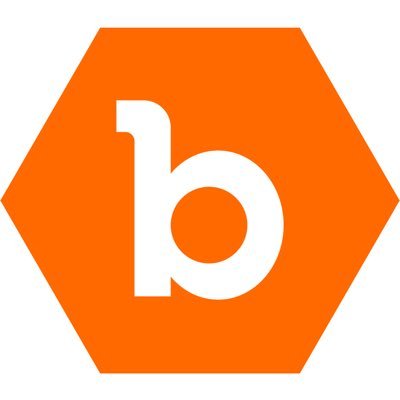Sustainable Learning: How Ebooks Contribute to a Greener Campus in the UK

As educational institutions work to reduce their environmental effect, sustainability is becoming more important. Digital substitutes for traditional textbooks, and eco-friendly study resources like e-books not only make studying easier but also drastically lessen the environmental damage caused by traditional books.
Universities may improve their sustainability initiatives, by substituting e-versions instead of printed materials. However, this post, will examine the digital learning advantages, the difficulties they present, and their potential in the future.
Environmental Impact of Traditional Books
The production of traditional books significantly impacts our environment in a number of ways we don't usually bother. This impact becomes a necessity for a shift towards eco-friendly e-books. Here are some impacts, traditional books present:
Deforestation & Production of Paper
The strong demand for paper is the main way of production of traditional books. However, paper production is done by deforestation, harming the ecosystem.
Water and Energy Usage
Along with destroying trees, the production of paper uses a lot of energy and water. For example, more than 7,000 litres of water are needed to produce one book, this way you can see how much water is wasted as well for the production of the book.
Generation of Waste
Furthermore, a serious environmental problem is the garbage produced by old or abandoned textbooks. A large number of books wind up in landfills, which worsens the state of the environment. This trash and paper manufacturing cycle emphasises how urgently better environmentally friendly substitutes for educational materials are needed. Universities may greatly reduce the negative environmental effects of traditional book production and consumption by refocusing their attention on digital services like ebook writing service and ebooks.
Popowska, M., 2024.
How Ebooks Contribute to Campus Sustainability
Ebooks play a vital role in promoting, campus sustainability in several ways, students must know how to minimise traditional book use. Here is how ebooks contribute to a healthy environment:
Minimisation of Paper Use
E-books are a game-changer nowadays, as they cut down the use of paper, which is hazardous to the environment. For e-books, all you need is a good internet connection to download the file. This reduction in the use and need for paper, reduces deforestation and protects our ecosystem and ozone layer.
Carbon Impact Reduction
The carbon impact of producing books is greatly reduced by using e-books, this is because the e-books don’t need to be physically produced from wood, nor do they need to be printed so they decrease the gas emissions.
Reduced Production of Waste
Additionally, e-books reduce waste generation by tackling the problem of outdated paper products and discarded textbooks, which usually end up in landfills. This digital format guarantees more effective use of resources while also removing the physical waste produced by traditional books.
Efficiency in Energy Use
Studies reveal that, when taking into account the whole lifetime of the materials, the total environmental effect of ebooks is usually lower than that of printed books, despite the fact that the gadgets used to access them utilise energy.
Benefits of Ebooks for Students
Ebooks possess significant economic and practical benefits not only for students but also for their universities, providing interactive learning features that enhance their educational experience.
Cost Reductions
Universities stand to gain much from the transition to e-books in a financial way as well. Students' financial difficulties can be lessened by using e-books as they cost way less than traditional books.
Convenience and accessibility
E-books also offer ease and accessibility that are unmatched. With rapid access to a wide variety of resources, students are not constrained by the physical storage problems that come with traditional books.
Effective Use of Space
Another significant benefit is space efficiency; by digitizing their holdings, university libraries may eliminate the need for substantial infrastructure for shelving and storage. Within libraries, this reorganisation of space may allow for more study spaces or collaborative settings.
Interactive Learning
Ebooks improve interactive learning by integrating multimedia elements into traditional concepts, which engage students more deeply, and improve understanding and retention of information. Moreover, students who use services like assignment writing service, can benefit from these interactive features because they frequently align with resources that supplement their academic support.
Challenges & Solutions Implementing Ebooks
Several obstacles stand in the way of university ebook adoption. First is digital division and accessibility, through which learning may be hampered for certain students who do not have access to electronics or the internet. Universities offering reasonably priced or borrowed equipment as a way to guarantee an equitable opportunity for all students is one possible option.
Extended usage of screens can lead to pain and health problems. Promoting the usage of blue light filters and e-ink devices are two ways to lessen strain. Also, limitations on access to resources and restrictions on digital sharing might cause issues. By negotiating stronger license arrangements with publishers, institutions may address this issue and provide greater access to digital material.
The Future of Ebooks
E-books have a bright future on UK campuses, as forecasts indicate that the usage of digital learning resources will only increase. Innovations like artificial intelligence (AI) are predicted to support this change by improving ebook features and giving students immersive, interactive learning opportunities.
In addition to incorporating these technologies, UK institutions are becoming more aware of their obligation to advance digital sustainability by creating plans that give priority to environmentally friendly activities. As they spearhead this shift, e-books have a huge chance to revolutionise education while lessening the environmental effect of conventional learning materials.
(helpwithdissertation,2021)
Conclusion:
Ebooks, significantly contribute to green campuses in a number of ways that are discussed in this post. However, their integration into curricula contributes to the development of more sustainable ways, which is consistent with higher education's growing emphasis on ecological responsibility. Digital learning resources must continue to be used by universities in order to promote creativity and environmental responsibility. However, it is critical that institutions and students use these digital tools since they not only improve educational opportunities but also help create a more sustainable future. They can set the standard for a more environmentally friendly educational environment if they work together.
References:
-
HWD. 2021. How Artificial Intelligence Is Changing The Education System For The Better. Available at < https://www.helpwithdissertation.co.uk/blog/artificial-intelligence/ >
Popowska, M., 2024. Available at < https://books.google.com.pk/books?hl=en&lr=&id=wasSEQAAQBAJ&oi=fnd&pg=PT10&dq=How+Ebooks+Contribute+to+a+Greener+Campus+in+the+UK&ots=TvZc7QCWGH&sig=7RAZNEpeljDnVX4iuHHD0BiFC-k&redir_esc=y#v=onepage&q&f=false >


























































































































































